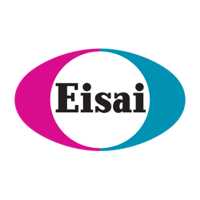
05 Dec LENVIMA® (lenvatinib) Based Combination Therapy in Patients With Renal Cell Carcinoma
MedicalResearch.com Interview with:
 Dr. Corina Dutcus MD
Dr. Corina Dutcus MD
Vice President of Clinical Research
Oncology Business Group
Eisai
MedicalResearch.com: What is the background for this study? Would you briefly explain how lenvatinib works? Is it used for any other malignancies, ex. thyroid cancer?

Response: LENVIMA (lenvatinib), discovered and developed by Eisai, is an orally available multiple receptor tyrosine kinase inhibitor that inhibits the kinase activities of vascular endothelial growth factor (VEGF) receptors VEGFR1 (FLT1), VEGFR2 (KDR), and VEGFR3 (FLT4). LENVIMA inhibits other kinases that have been implicated in pathogenic angiogenesis, tumor growth, and cancer progression in addition to their normal cellular functions, including fibroblast growth factor (FGF) receptors FGFR1-4, the platelet derived growth factor receptor alpha (PDGFRα), KIT, and RET.
LENVIMA is approved in combination with everolimus for the treatment of patients with advanced renal cell carcinoma (RCC) following one prior anti-angiogenic therapy. The approved starting dose for LENVIMA is 18 mg daily. The objective of Study 218, a randomized, open-label, Phase 2 trial, was to assess whether the lower starting dose of LENVIMA (14 mg daily) in combination with everolimus (5 mg daily) would provide similar efficacy with an improved safety profile compared to the FDA-approved starting dose of LENVIMA (18 mg daily) plus everolimus (5 mg daily) in patients with advanced renal cell carcinoma (RCC) following prior treatment with an antiangiogenic therapy.
In the US, LENVIMA is also indicated for:
- the treatment of patients with locally recurrent or metastatic, progressive, radioactive iodine-refractory differentiated thyroid cancer (RAI-refractory DTC);
- for the first-line treatment of patients with unresectable hepatocellular carcinoma (HCC);
- and in combination with pembrolizumab, for the treatment of patients with advanced endometrial carcinoma that is not microsatellite instability-high (MSI-H) or mismatch repair deficient (dMMR), who have disease progression following prior systemic therapy, and are not candidates for curative surgery or radiation. This indication is approved under accelerated approval based on tumor response rate and durability of response. Continued approval for this indication may be contingent upon verification and description of clinical benefit in the confirmatory trial.
Please see Prescribing Information for LENVIMA (lenvatinib) at http://www.lenvima.com/pdfs/prescribing-information.pdf.
MedicalResearch.com: What are the main findings?
Response: Findings from Study 218 were shared in an oral presentation at the International Kidney Cancer Symposium (IKCS) 2020. The results indicate that the lower starting dose (14 mg) of LENVIMA did not meet the threshold for non-inferiority compared to the FDA-approved starting dose (18 mg). The primary efficacy endpoint was noninferiority of LENVIMA 14 mg versus 18 mg for objective response rate (ORR) at Week 24 (odds ratio: >0.76; P-value: ≤ 0.045) based on investigator assessment per RECIST v1.1. The primary safety endpoint was superiority of the proportion of patients with intolerable Grade 2 or any ≥ Grade 3 treatment-emergent adverse events (TEAEs) within 24 weeks after randomization in the 14 mg versus 18 mg treatment arms.
In the primary efficacy analysis (n=311 patients), ORR at week 24 for patients treated with LENVIMA at the lower starting dose (14 mg) was not non-inferior to ORR at week 24 for patients treated with the approved starting dose (18 mg). ORR at Week 24 for patients starting with 14 mg and 18 mg were 32.1% (95% CI: 24.7-39.4) and 34.8% (95% CI: 27.3-42.3), respectively. In the primary safety analysis (n=309), the occurrence of intolerable Grade 2 or any ≥ Grade 3 TEAEs was similar between the 14 mg and 18 mg treatment arms: 82.8% vs. 79.6% (P-value: 0.4763), respectively. The 18 mg starting dose of LENVIMA plus everolimus 5 mg demonstrated a similar safety profile as seen in a previous Phase 2 trial (Study 205).
MedicalResearch.com: What should readers take away from your report?
Response: The study, in which 343 patients received LENVIMA plus everolimus, helps to contribute to the growing body of evidence supporting the role of this TKI-mTOR combination in the advanced RCC treatment paradigm. Results indicate that the lower starting dose (14 mg) of LENVIMA did not meet the threshold for non-inferiority compared to the FDA-approved starting dose (18 mg). This research demonstrates our commitment to advancing our understanding of our oncology compounds and generates key insights for the medical community to help inform treatment decisions around dosing.
MedicalResearch.com: What recommendations do you have for future research as a result of this study?
Response: The results of Study 218 help expand our knowledge and understanding of LENVIMA. We hope to continue to explore the potential of LENVIMA in combination with other therapies in the RCC space through other studies such as the Phase 3 CLEAR Trial (Study 307) (ClinicalTrials.gov, NCT02811861).
MedicalResearch.com: Is there anything else you would like to add? Any disclosures?
Response: The Study 218 trial is sponsored by Eisai. The results from the study discuss investigational uses for FDA-approved products. It is not intended to convey conclusions about efficacy and safety. There is no guarantee that any investigational uses of FDA-approved products will successfully complete clinical development or gain FDA approval.
Citation:
Chung-Han Lee, Amishi Yogesh Shah, James J Hsieh, Arpit Rao, Alvaro Pinto, Mehmet Asim Bilen, Allen Lee Cohn, Christopher Di Simone, David R. Shaffer, Regina Girones Sarrio, Sara Gunnestad Ribe, Jane Wu, Emmett V. Schmidt, Rodolfo F. Perini, Peter Kubiak, Alan D. Smith, and Robert J. Motzer
Journal of Clinical Oncology
2020 38:15_suppl, 5008-5008
The information on MedicalResearch.com is provided for educational purposes only, and is in no way intended to diagnose, cure, or treat any medical or other condition. Always seek the advice of your physician or other qualified health and ask your doctor any questions you may have regarding a medical condition. In addition to all other limitations and disclaimers in this agreement, service provider and its third party providers disclaim any liability or loss in connection with the content provided on this website.
Last Updated on December 5, 2020 by Marie Benz MD FAAD
